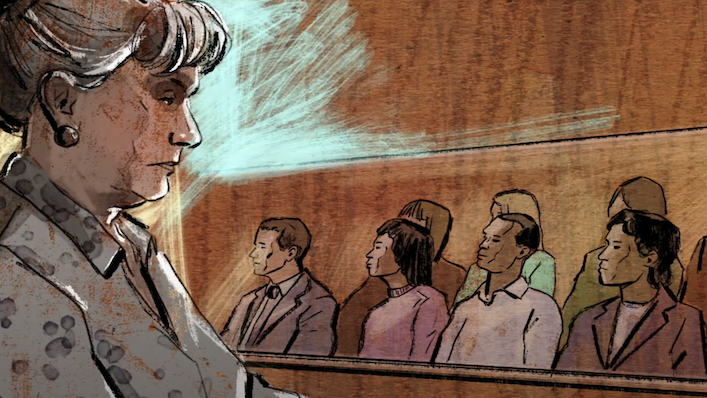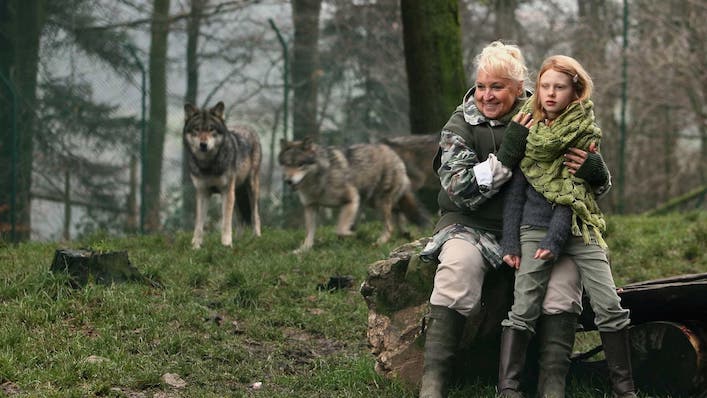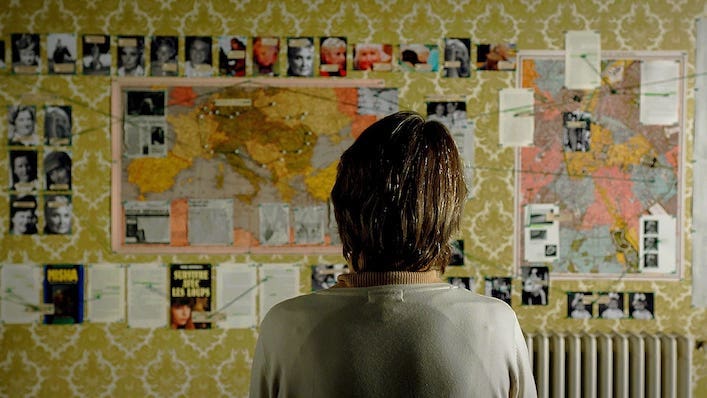Misha and the Wolves takes a basic, unsatisfactory approach to a complicated topic

A new Netflix documentary sets the record straight on one woman’s unbelievable Holocaust survival story—but without much personal insight, Travis Johnson finds Misha and the Wolves ultimately frustrating.
Look, spoilers, look away now, next paragraph gives the game away:
She lied through her goddamn teeth. It was all bullshit.
See also:
* All new streaming movies & series
* Movies now playing in cinemas
Back in the late 80s/early 90s (the exact date is debatable) Belgian immigrant Misha Defonseca stood up at Temple Beth Torah in Holliston, Massachusetts on Holocaust Remembrance Day and told her own story of escaping death at the hands of the Nazi regime. Born into a Jewish family, her parents were imprisoned and carted off to Germany for their activities in the Resistance. Under an assumed name, she sheltered with a Catholic family before resolving to seek out her real parents. Armed with a pocketknife and a dream, she set off across war-wracked Europe on her own.
She was seven. Or possibly six.
Which means she was almost certainly doomed. And she would have been, except a pack of wolves took her in and shared their kills with her. Unfortunately, she never found her parents, but she did survive and finally got to tell her tale. Fellow Temple member Jane Daniel was so impressed that she encouraged Defonseca to write a book, Misha: A Memoire of the Holocaust Years, which Daniel marketed through her own small publishing house. Published in 1997, it was a hit. Oprah endorsed it. There was a 2007 French film, Survivre Avec les Loups and, as is often the case in such matters when huge sums of money are up for grabs, a court case, with Defonseca suing Daniel for profits. Which is when Daniel started pulling at the loose threads in the author’s story.
In director Sam Hobkinson’s documentary Misha and the Wolves the game is given away pretty quickly, and the crux of the film is not whether Defonseca’s (real name: Monique de Wael, real religion: Catholicism, real babysitter: probably not, on balance, a wolf) story is a lie—that’s a matter of public record. Rather, he digs into the investigative process, laying out how a wide number of people, including Holocaust historians and genealogists, gradually unpicked the true thread of Defonseca’s life from the tangle of misinformation, obfuscation, and straight up deception she offered.

Which is interesting enough, and Misha and the Wolves is exhaustive in its efforts to talk to seemingly every single person who was involved—there are a lot of heads talking in this film. But Hobkinson dances around a more interesting element, which is why and how Defonseca’s grift went unquestioned for so long.
In a terrible irony, it is actually Adolf Hitler who coined the term “the big lie” in Mein Kampf, describing the notion of a falsehood so incredible, so far-fetched, that it must be believed because the idea that someone would make up something so ridiculous is even more unbelievable. It’s a cornerstone of propaganda theory, and an idea worth keeping in mind at a time when lunatics are screaming about the Great Reset and White Genocide, and QAnon as a concept simply exists. In this specific case, Defonseca’s victims were presented with an elderly Holocaust survivor with an incredible story of survival against immense odds. As one interview subject muses, “Far be it from me to question her.”

Using the Holocaust as a cloak made Defonseca largely immune to query for a long time, and that’s something that deserves more attention. We know this kind of fabulism, once uncovered, gives ammo to Holocaust deniers; the logic being if this story is a lie, then what else could be? The harm perpetrated go well beyond mere fraud; ultimately, she promoted, if not outright perpetuated, antisemitism, even as she herself claimed to be Jewish.
The real question that needs answering is not how, but why? What motivated her, and how does she feel now that the truth is out? Sadly, her presence here is largely archival, and any personal insight is absent; we are left to speculate. That leaves Misha and the Wolves as a film with a gaping hole at its centre, and an intriguing but ultimately frustrating viewing experience.

















